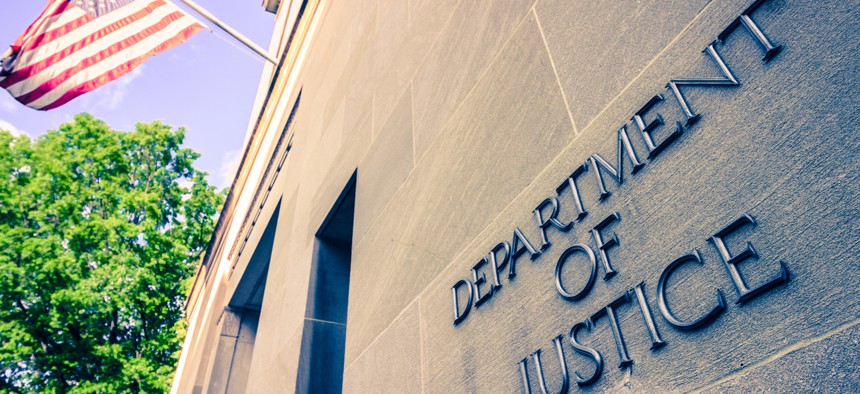
CHRISTOPHER E ZIMMER/Shutterstock.com
Office of Legal Counsel Is Illegally Withholding Opinions from Public Scrutiny, Suit Alleges
Plaintiffs argue that 25-year-old documents are vital to understanding the Trump administration's decisions and should be made public under the 2016 FOIA reform.
A free speech institution, a nonprofit watchdog and several scholars filed a lawsuit Wednesday against the Office of Legal Counsel for failing to fulfill Freedom of Information Act requests for decades-old documents they believe will shed light on current government surveillance activities, immigration policy and other significant issues. They argue the information should be released under a 2016 amendment to the law.
The Office of Legal Counsel, a Justice Department office that provides legal advice to the president and the executive branch, renders opinions that “definitively answer legal questions raised by agency officials or to resolve legal disputes between federal agencies,” the plaintiffs wrote in the complaint filed with the U.S. District Court for the Western District of Washington. Those opinions have defined the executive branch’s role in immigration enforcement, resolved disputes over nepotism, and determined whether the Justice Department can indict a sitting president, among other things.
The suit, brought by the Knight First Amendment Institute at Columbia University, the Campaign for Accountability and a group of scholars, is seeking documents related to FOIA requests for formal OLC opinions prior to Feb. 15, 1994. The Office of Legal Counsel maintains that its opinions are protected under the “deliberative processes privilege,” according to Daniela Nogueira, an attorney for the plaintiffs. This is an exemption that allows agencies to withhold documents considered part of the decision-making process. A bipartisan FOIA reform law signed by President Obama in 2016, however, ended that exemption after 25 years.
The plaintiffs made their document request on Feb. 15 but “have not received a substantive response to their proposal” and “exhausted all applicable administrative remedies,” according to the lawsuit. They claim the Office of Legal Counsel violated the statutory limit of FOIA, failed to make records promptly available and did not grant them a waiver for search, review and duplication fees to which they believed they are entitled.
“OLC has not only defied Congress’s intent in enacting FOIA to extinguish secret law, but also violated the fundamental democratic principles,” the complaint stated. “The government’s reliance on secret law undermines public accountability, democratic self-governance, and the legal and historical record of our government’s conduct.”
The 2016 bipartisan FOIA reform codified the “presumption of openness,” promoted broader release of records beyond those who made the request, and set a 90-day minimum for requesters to file appeals, among other things.
Nogueira told Government Executive, “Legal historians and scholars have been interested in getting a hold of particular opinions from the past that are at the basis of some opinions that we see coming out today.”
Specifically, the plaintiffs are seeking an opinion from 1984 that pertains to presidential power and is referenced in subsequent opinions, Nogueira said. They believe the opinion is called, “Constitutionality of Certain National Security Agency Electronic Surveillance Activities Not Covered Under the Foreign Intelligence Surveillance Act of 1978.”
The Knight First Amendment Institute and Campaign for Accountability have another lawsuit pending against the Justice Department. It involves the “reading room provision,” which requires certain basic agency records to be made routinely available to the public. The plaintiffs argued that the Office of Legal Counsel has published only a fraction of the “legal opinions that bind federal agencies on matters of significant public concern.” They argued the case in July 2018 and are awaiting a decision.
Image via CHRISTOPHER E ZIMMER/Shutterstock.com.







